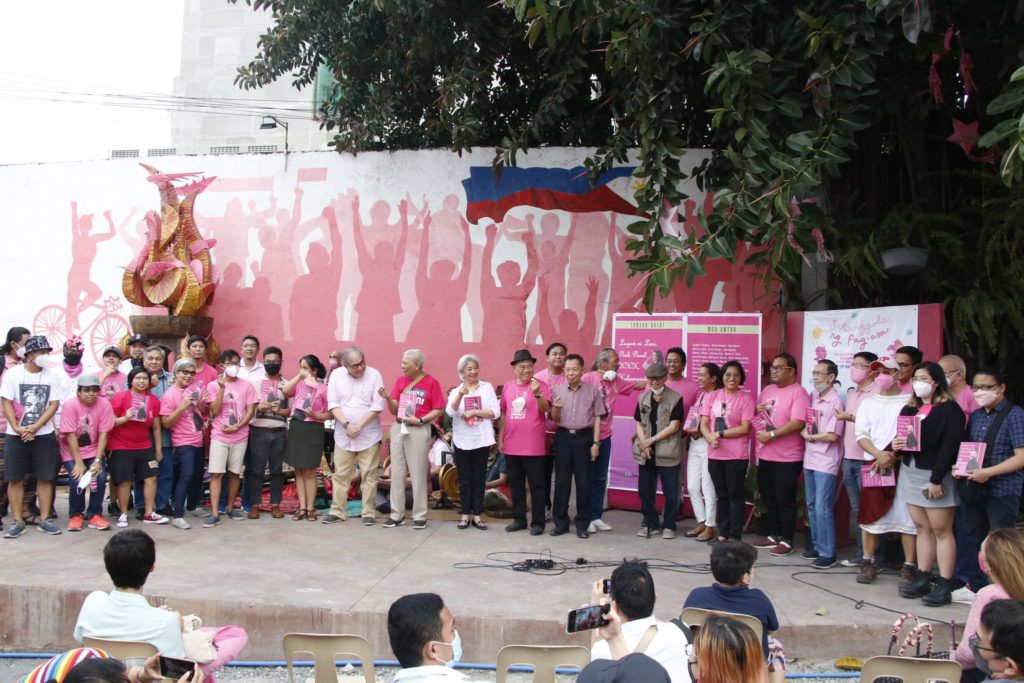By: Gémino Abad, National Artist for Literature 2022
I write to get real.
What we call our world is only our human reality: we have no other. Without language, we would be unable to make sense of it because our thoughts and feelings would have no medium. We would have no memory, no history, no culture, no civilization. (We have no access to other creatures’ sense or consciousness of their environment: we can only imagine it.) Our consciousness is our own psyche (from Greek psychē, “breath, principle of life, life, soul”): inner self or spirit, mind and heart.
Language is our imagination’s finest invention: they are one. But words are abstractions, concepts: we need to imagine what they express. The word evokes an image; the image lights up its meaning. To think well is to imagine well: mind and imagination are one. “Concepts without intuition are blind; intuitions without concept are empty,” says Immanuel Kant (Critique of Pure Reason).
We are our words, and all our words speak true. “A rose is a rose is a rose,” says the poet Gertrude Stein. If then a word’s nature is truth-saying, our own nature is truth-seeking. Only the liar ab-uses, wastes, language, deceives himself (and others, as well) and debases, corrupts his own nature.
All our words cry out for more light. Any text or word- weave is a bearer of meaning (Tagalog, saysay, “significance”); but at times, what has been wrought has an ineffable depth of meaningfulness (Tagalog, diwa, “spirit, soul”) which bears the writer’s intuition or insight: a luminance of thought no idea expresses, a radiance of feeling no thought apprehends.
The poem as generic term (from Greek poiēsis, “creation”) is any creative or literary work in whatever field of human knowledge. It is constituted by language and imagination working in concert. The imagination makes real to the mind what the mind abstracts from our sense or consciousness of what is real, what is true, what is right, what is just. We need only at times to be skeptical (Greek, skep-tikos, “thoughtful”; skeptesthai, “to look, consider”): to reflect, introspect, discern; to listen quietly to one’s own spirit, where the word is the way, the truth, and the life.
The poem is to live, for its subject or theme is one’s own consciousness, a human experience: mind’s import, heart’s burden. (The word experience comes from Latin experiri, “to try,” akin to Latin periculum, and Greek peiran, “attempt; peril, danger.”) And as you read any text (or word-weave), you are also read! — which is why you are also moved at all! (the writer himself has already been moved by what he had imagined and written).
The writer as artist is a shaper of language. He works the language, as the farmer tills the soil to bear his crop: he finds his own path through the lexical wilderness of a given historical language and makes his own clearing there. The ground of language which he shapes is a people’s culture through their history. Himself shaped by language(s), one is spoken for, but may, in his own time, speak back and clarify, even modify, a given outlook or understanding. Any language then (Tagalog, English, etc. as it has evolved), given an adequate mastery of it, can shape one’s sense of country. Our literature then, wrought from (rather than written in) whatever language is our people’s memory. A country is only as strong as her people’s memory: Imagination’s heartland. One’s country (like nation, an abstraction) is what one’s imagination owes allegiance to.
(This essay is a summing-up of a longer essay in my The Light in One’s Blood / SelectPoems, 1973-2020 (Diliman, Q.C.: 2021): 331-345.)

